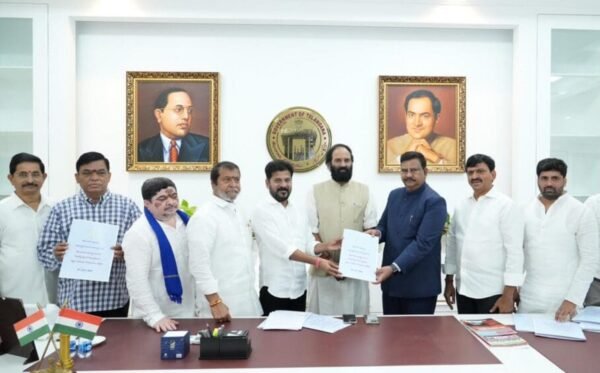On Ambedkar Jayanti, Telangana Rolls Out India’s First Quota Within Quota For SCs

Telangana Implements India’s First “Quota Within Quota” for Scheduled Castes
On April 14, 2025—Ambedkar Jayanti—Telangana became the first state in India to implement a “quota within quota” system for Scheduled Castes (SCs), marking a historic step in affirmative action and social justice policy.
What Is the “Quota Within Quota” for SCs?
Telangana’s new policy divides the existing 15% reservation for SCs in education and government jobs into three sub-categories, each with a different share of the quota. This move is designed to ensure that the most disadvantaged sub-castes among SCs receive a fairer share of reservation benefits, addressing long-standing demands for more targeted affirmative action.
Breakdown of the New SC Reservation Structure
| Group | Number of Sub-castes | Reservation Share | Description |
|---|---|---|---|
| Group I | 15 | 1% | Most socio-economically disadvantaged |
| Group II | 18 | 9% | Moderately backward |
| Group III | 26 | 5% | Relatively better-off among SCs |
The categorisation is based on recommendations from a commission led by retired High Court judge Justice Shameem Akther, which studied social, educational, and economic disparities among SC sub-castes.
The government has committed to revising these quotas in line with updated population data from the 2026 Census.
Legal and Political Context
The Telangana SC (Rationalisation of Reservations) Act, 2025, was passed by the state assembly on March 18, 2025, and received the Governor’s assent on April 8, 2025.
The move follows a landmark Supreme Court judgment on August 1, 2024, where a seven-judge Constitution Bench ruled (6:1 majority) that sub-classification within SC and ST reservations is constitutionally permissible. This overruled the earlier E.V. Chinnaiah judgment, which had barred such internal categorisation.
The Supreme Court clarified that sub-classification aims for fair distribution of benefits and does not exclude any caste from reservation.
Implementation and Impact
The new system is effective immediately for all future government job recruitments and educational admissions in Telangana.
33% of the sub-category quotas are reserved for women. Unfilled posts will be carried forward within the same sub-category, not diverted to other communities.
The government rejected the introduction of a “creamy layer” (economic exclusion) within SCs, focusing instead on social and educational backwardness.
The policy is seen as a response to decades-long demands, especially from the Madiga community, for more equitable distribution of reservation benefits among SC sub-castes.
This “quota within quota” initiative is being hailed as a major act of social justice, aiming to ensure that the most marginalized among the SCs are not left behind in the reservation system. Telangana’s move is expected to influence similar policies in other states and has reignited the national debate on targeted affirmative action within marginalized communities.
“On the auspicious day of birth anniversary of Dr Ambedkar, Telangana govt paid best tributes by bringing into force a great Act of Social Justice, addressing a demand of classification of SC sub-castes.” — Chief Minister Revanth Reddy
Telangana’s implementation of sub-categorisation within SC reservations is a pioneering step, enabled by recent Supreme Court jurisprudence, and is designed to make reservation policies more equitable and responsive to the needs of the most disadvantaged.
